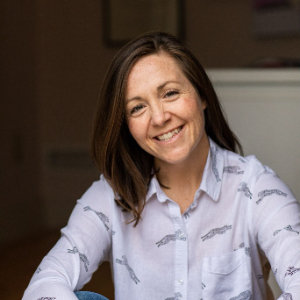
Heartfelt Apologies
This week, we bring back a partner and mentor, Stephen Andrew who writes about heartfelt apologies.
“A good apology is when we take clear and direct 100% responsibility without a hint of evasion, blaming, shaming [or] excuse-making—and without bringing up the other person's crime sheet,” says Harriet Lerner, clinical psychologist and author of Why Won't You Apologize? Healing Big Betrayals and Everyday Hurts.
One way to interpret this is that a heartfelt apology puts the connection first, over our hurts.
Heartfelt Apologies
The apology doesn’t find a way to justify what you did or to go into their inventory about the other person. Repair, in general, puts the love of connection above the interests of you, the individual. Even when you want to scream, slam a door, bring up what they did, slip into blaming, or shaming, or not talk to them for the next three days, ask yourself: “If I do this now, what will this do to our connection? What does our relationship need from me right now, at the moment?”
Remember: To hold the right position is to destroy the relationship.
Some apologies show ambivalence. Even if you don’t regret what you did as a behavior you can apologize for the impact it had on your friend, partner, family, children, and colleagues in your life. However, be careful of the language you use. “I’m sorry if I made you feel” may sound appropriately apologetic but it puts the responsibility on the other person.
Repair requires accountability. A heartfelt apology includes:
- awareness of what you did, this is helpful to your self-confidence
- 100% responsibility for how you behaved ( how did I contribute to this rupture of this continuing relationship?)
- acknowledgment through the use of empathic understanding of the impact this had on the other person (a gentle guess) even if they hurt you, too
From this place, you can stand accountable without needing the other person (people) in your life to validate, redeem, or forgive you. You just do your part, for the loving connection of the relationship.
A heartfelt apology empowers all of us.
There is power in apologizing first. It’s not only because there is power in vulnerability for you and others. “It says they matter.” It’s because there is something about owning, claiming, and taking full responsibility that gives you a sense of agency. It’s not power “over” another; it’s power “to”—to clear the debris, to reorganize the pieces, to make things clear.
When you apologize, you choose to change the story of the conflict, to move the narrative forward. As the heartfelt apologizer, you are the person who is saying “Enough.” We may have made this rupture together, but I care for our relationship more than my ego and I fully own my part and I’m sorry to you for what I’ve done.
Apologizing also helps us to realize how much impact we can have on another person. There is weight to our actions. If we have the power to hurt, we also have the power to take a step toward healing. And, when we apologize first, we open the door for the other person to meet us in that place of open communication. We may lessen the shame for them and ourselves. We acknowledge together that being in connection, or at least neutral, is more important than winning, being RIGHT.
Thank you, Stephen, for sharing your insight.


